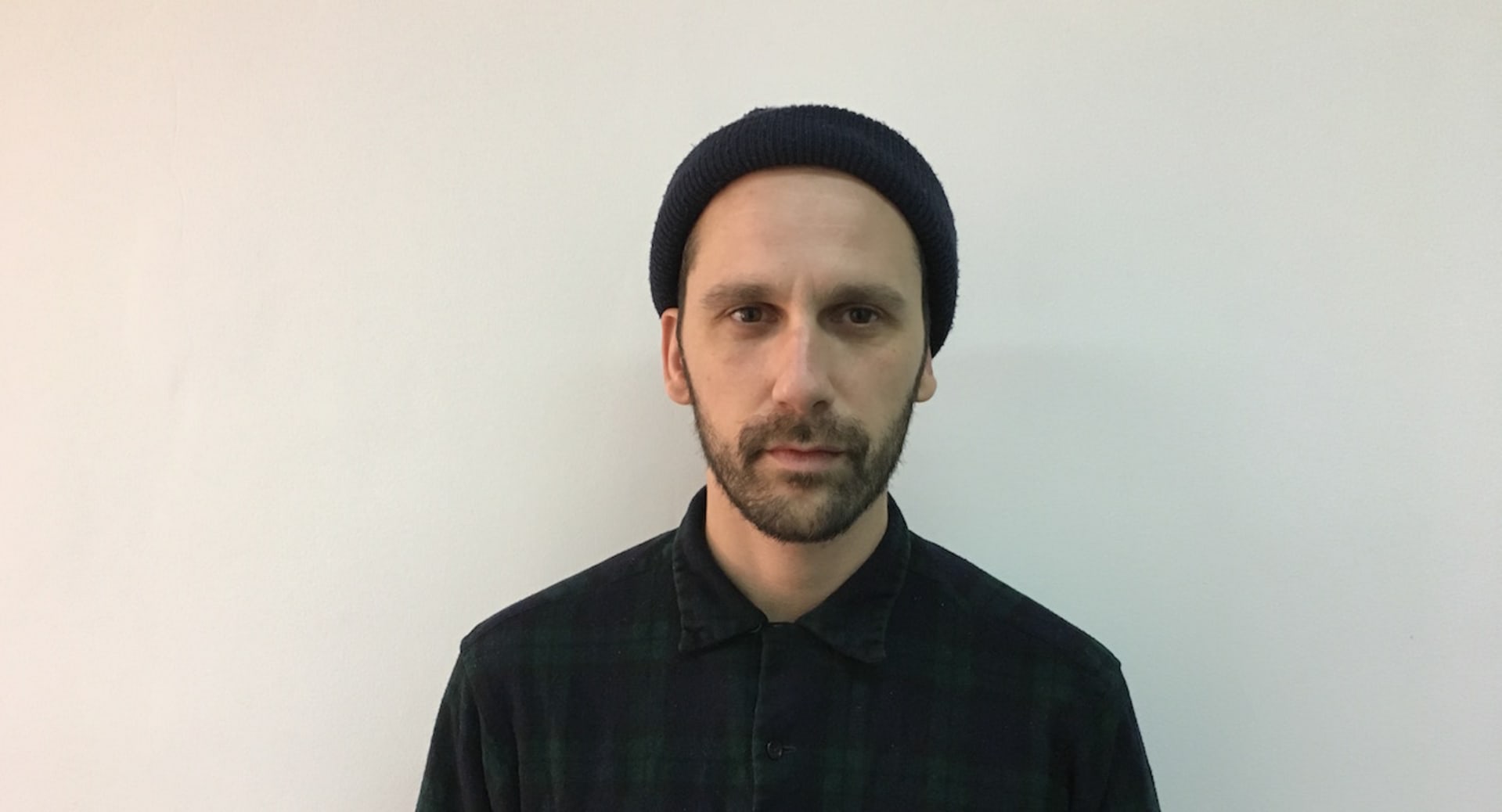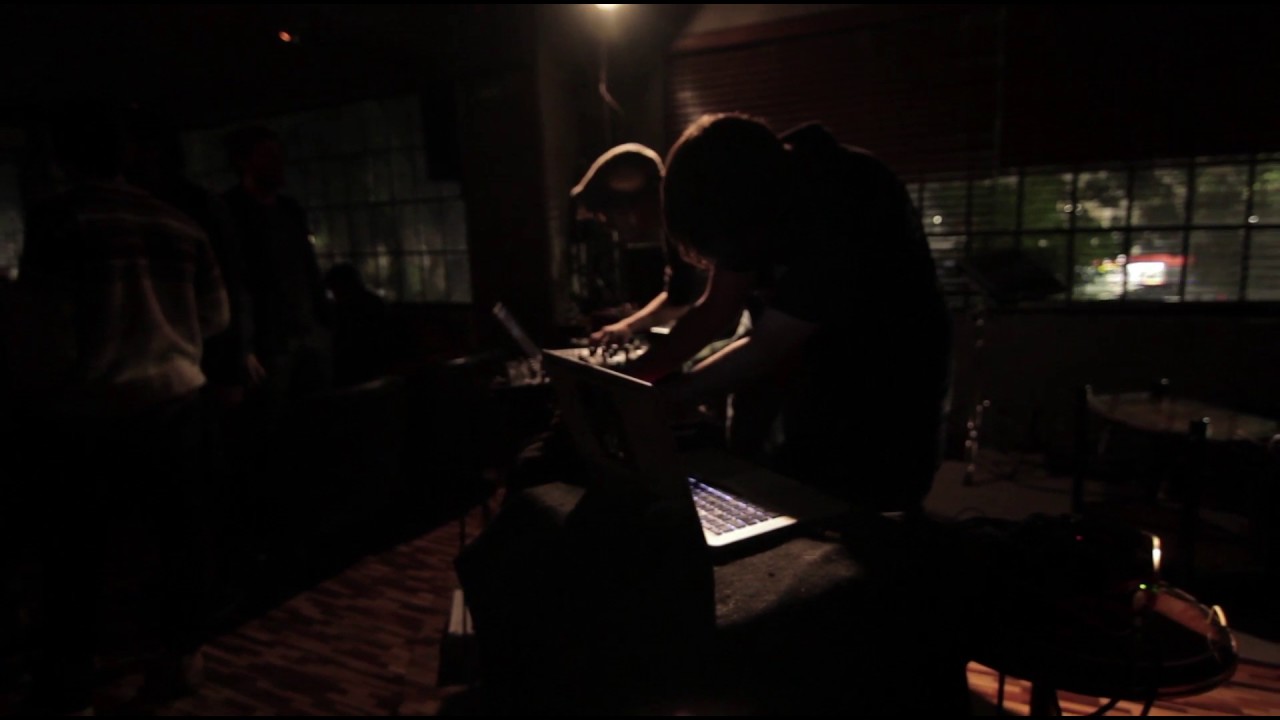
Greek Dread: Jay Glass Dubs Explains His Tripped-Out Post-Dub Sound
Jay Glass Dubs' debut full-length album 'Epitaph' is out now on Bokeh Versions.
Jay Glass Dubs name is something of a misnomer. Despite what you think, the music made under that alias by Athenian producer Dimitris Papadatos only uses dub as a starting point. Instead, his music explores a dark sonic world that owes as much to Bristolian trip-hop and early Sheffield industrial as it does dub heavyweights like Lee Scratch Perry and King Tubby.
Case in point: Epitaph, his debut LP, out now on Bokeh Versions. It’s a reverb-drenched excursion through sonic dread that mixes organic instrumentation—like free jazz saxophones, for instance—with chugging Jamaican rhythms and sinister blurts of noise. Give it a listen below.
Prior to Epitaph, Papadatos’ biggest record was YMFEES, his collaboration with pioneering multi-disciplinary artist and model, Leslie Winer. Weaving Winer’s spoken word vocals into a hazy collage of frequencies, Papadatos makes something that sounds like a kind of modern update on the original Bristol hip-hop sound. It also happens to be a favorite record of mine.
Now, following the release of Epitaph, I caught up with Papadatos to learn more about his sonic universe.
You used to be in the army in Greece. How did this affect your approach to life? Did you have any creative experiences or contact with music that influenced you?
Army conscription is mandatory in Greece, so I wouldn’t say that this was something I could avoid doing. The army didn’t affect me or my work positively in any way—it only assured me that I would never serve a deeply corrupt system ever again. It’s a place of discrimination and sexism. It’s also a fertile ground for nationalism and racism and an overall worthless experience.
There is a dub influence running through a lot of your work—especially your first Jay Glass Dubs releases. What is it about dub music that you find interesting?
As I have mentioned before in interviews, what interests me about dub music is mainly its methodology.
I like how it encourages you to use the studio as an instrument and to approach arrangements in a stripped-down and straightforward way. It can lead to very complex and elaborate results.
This influence is present throughout all of my work even if the Dub suffix in my stage name can disappoint listeners who expect anything close to the genre’s traditional properties.
How do you see your sound developing?
I’ve always been interested in songwriting. And I’ve always approached Jay Glass Dubs with a focus on composition. Jay Glass Dubs is now developing into a more structured version of its predecessors, and I couldn’t be happier. I believe my forthcoming albums will make this clearer.
You seem to favor more long form releases. What is it about a long format (tapes, albums, etc.) that appeals to you?
I have always enjoyed listening to albums in their entirety. Immersing myself in an artist’s vision is something that I’ve always found fascinating and important. It might reflect the collector and music nerd in me, but I believe that a strong concept in an album can be more successfully executed when the duration is longer.
Do you have a set approach to making music?
I always start with the mixer. My approach is somewhat close to musique-concrète, where a basic idea is born inside the mixing console. I then turn this skeletal idea to arrangement and so on.
My hardware setup varies: In general, I prefer using Ableton Live for composing and playing live. I love the hands-on experience it provides, and I can use it easily wherever I am. Inspiration hits most of the time without warning, and it’s great to be able to be ready for it.
How did you come to work with Leslie Winer?
I have always been a huge fan of her music, and when Miles from Bokeh asked if I would like to work with a vocalist, she was the first one that came to mind.
He approached her on my behalf, and she was so kind to grace my music with her presence and words. We worked from a distance—we still haven’t met in real life. She is one of my heroes, and I feel very proud to have contributed to her very unique back catalogue.
Do you plan to work together again in the future?
Maybe, yes. I am all up for it.
What new releases do you have scheduled?
My debut full-length album, Epitaph, is out now via Bokeh Versions. There’ll also be a second EP soon for Berceuse Heroique. There is also a 7” on iDEAL’s Dub On Arrival sub-label and a collaboration that has to remain secret for now. I am working a lot, clearly!
How does being based in Athens affect your music making? What about ‘career’ options?
Up until now I have managed to find a balance living in Athens and playing abroad quite a lot, so I can’t complain. However, it hasn’t always been easy.
My music is very much inspired by the place I live. There is a certain darkness to Athens that overshadows the sunny weather and weight of history, especially when you are born and raised here.
I guess I’d have better career options if I lived in Berlin or Bristol, but to be honest, I really enjoy being “off the radar.” More people around the world know about my work right now, and I can’t see why this would change if I was resident in a huge metropolis, mingling with music industry people and struggling to make ends meet, which is something I do in Athens anyway.
Artists should start thinking outside of local boxes and focus instead on how they can make a sustainable living off their work regardless of their residential coordinates.
So no plans to move somewhere else?!
Another planet would definitely be an option!
Published February 11, 2019. Words by Gareth Owen.

